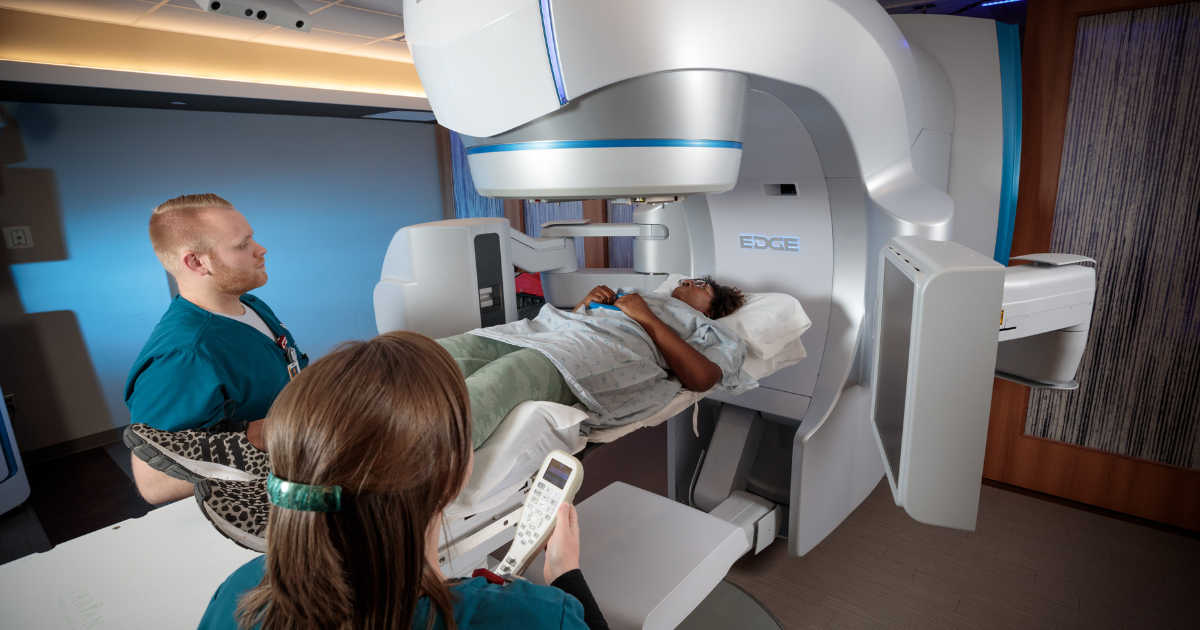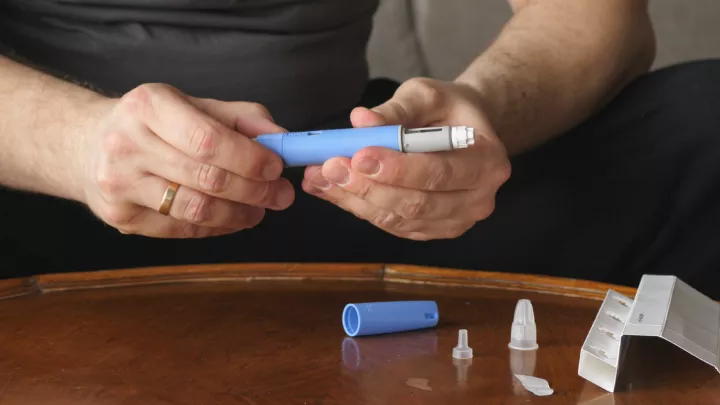Cancer treatment advances

Radiation Oncology
Charles Enke, MD, radiation oncologist
A new treatment option for men with recurrent prostate cancer, previously treated with radiation therapy, is now available. The Fred & Pamela Buffett Cancer Center is the only place in the region to offer intraoperative high-dose-rate salvage prostate brachytherapy.
“Prostate cancer is the most common nonskin cancer in men – affecting 1 in 8 men in their lifetime,” says Charles Enke, MD, Nebraska Medicine radiation oncologist. An estimated 20% to 30% of men with low- or intermediate-risk prostate cancer will experience a relapse after five years. This includes men treated with surgery or outpatient radiation therapy.
Surgical removal of the prostate or cryotherapy are treatment options for local recurrence following radiation therapy. These therapies, however, are rarely offered due to a substantial risk of treatment-related side effects, notes Dr. Enke.
HDR salvage brachytherapy involves temporarily inserting plastic needles into the location of the prostate cancer recurrence. A computer-controlled guide wire with a radioactive source uses the needles to deliver radiation therapy to the area of recurrent cancer. The patient goes home the same day. Two separate HDR procedures, performed two weeks apart, are required.
Surgical Oncology
Bradley Reames, MD, surgical oncologist
The robotic surgery program for abdominal operations, including those for benign and malignant tumors of the pancreas, liver, bile ducts and gallbladder, has expanded. The use of robotics allows surgeons to safely perform technically demanding procedures and more complex operations through smaller incisions via a minimally invasive approach.
“Robotics allows us to offer a wide variety of complex gastrointestinal, liver, pancreas, and biliary procedures that result in less pain and discomfort, and reduced recovery time for many patients,” says Bradley Reames, MD, Nebraska Medicine surgical oncologist and hepatic-pancreatic-biliary surgeon. “For cancer patients, faster healing and recovery mean they can begin additional therapies sooner.”
Robotic surgery continues to gain popularity. Nebraska Medicine is one of a few health systems in Nebraska to offer it for complex gastrointestinal, liver, pancreas and biliary procedures. “This area of the body involves highly complex anatomy that requires greater technical precision and experience to perform these surgeries,” he says.
“We also have the advantage of being an academic referral center with numerous specialties and resources immediately available. This allows us to safely manage the most complex cases.”
Medical Oncology
Bhavina Sharma, MD, MPH, medical oncologist
Nebraska Medicine has several clinical trials currently in progress that are looking at the success of combining new therapies, such as immunotherapy and targeted therapy, with chemotherapy.
How are these new therapies different than chemotherapy?
Chemotherapy uses drugs designed to directly attack all rapidly dividing cells in the body, including cancer cells. “Unfortunately, these drugs can’t tell the difference between cancerous cells and fast-growing healthy cells like the gastrointestinal tract and hair follicles, which can lead to side effects such as diarrhea and hair loss,” says Bhavina Sharma, MD, MPH, medical oncologist.
Unlike chemotherapy, targeted therapy drugs actually change the inner workings of the cancer cell. Because targeted therapy focuses on the part of the cancer cell that makes it different from the normal, healthy cell, it often has fewer side effects than standard chemotherapy treatments. Immunotherapy is very different from chemotherapy in that it helps our immune system find and kill cancer cells. “Cancer cells hide from our immune system by shutting down certain pathways of the immune response,” says Dr. Sharma. “Immunotherapy unlocks those pathways so the immune system can recognize and remove the cancer cells.”






